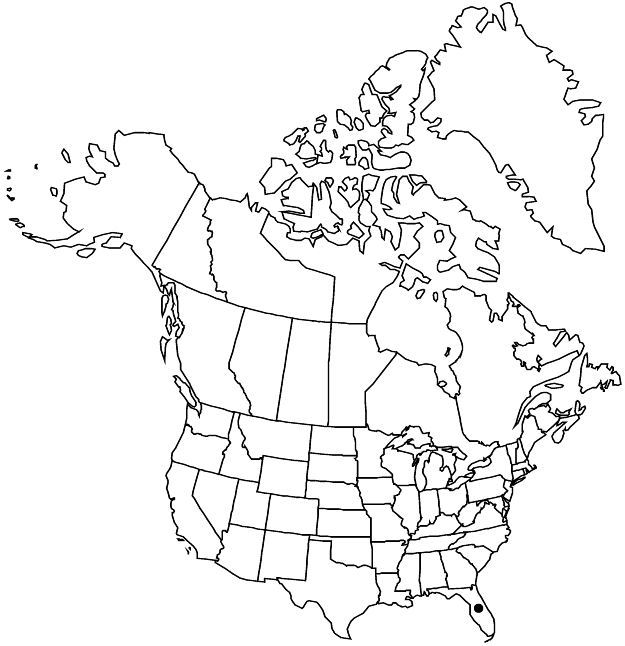Phyllanthus amarus
Beskr. Guin. Pl., 421. 1827.
Herbs, annual, monoecious, 1–5 dm; branching phyllanthoid. Stems: main-stems terete, not winged, glabrous; ultimate branchlets subterete, not winged, glabrous or slightly scabridulous proximally. Leaves on main-stems spiral, scalelike; stipules not auriculate, pale-brown. Leaves on ultimate branchlets distichous, well developed; stipules not auriculate, pale green with pale-brown margins; blade elliptic-oblong to obovate, 5–11 × 3–6 mm, base obtuse or rounded, apex obtuse to rounded, often apiculate, both surfaces glabrous. Inflorescences cymules or flowers solitary, proximal staminate with 1–2 flowers, distal bisexual with 1 pistillate flower and 1 staminate flower. Pedicels: staminate 0.6–1.3 mm, pistillate spreading in fruit, (1–) 1.2–2 mm. Staminate flowers: sepals 5 (–6), pale green, flat, 0.3–0.6 mm; nectary extrastaminal, 5 glands; stamens (2–) 3, filaments connate throughout. Pistillate flowers: sepals (5–) 6, green with broad pale green to white margins, flat, 0.8–1.1 mm, 1-veined; nectary annular, 5 (–7) -lobed. Capsules 1.9–2.1 mm diam., smooth. Seeds uniformly brown, 0.9–1 mm, longitudinally ribbed. 2n = 52 (Jamaica).
Phenology: Flowering and fruiting year-round.
Habitat: Fields, roadsides, gardens, other disturbed areas.
Elevation: 0–10 m.
Distribution

Introduced; Fla., Mexico, West Indies, Central America, South America, also in Asia, Africa, Indian Ocean Islands, Pacific Islands, Australia
Discussion
Phyllanthus amarus, a pantropical weed, appears to be native to the American tropics. In the flora area, it is naturalized only in southern Florida, where it apparently was introduced sometime in the second half of the nineteenth century. It has been found in nursery stock in California (G. F. Hrusa, pers. comm.) and may become naturalized there.
Selected References
None.
Lower Taxa
"elongating" is not a number."connate" is not a number."/2" is not declared as a valid unit of measurement for this property.